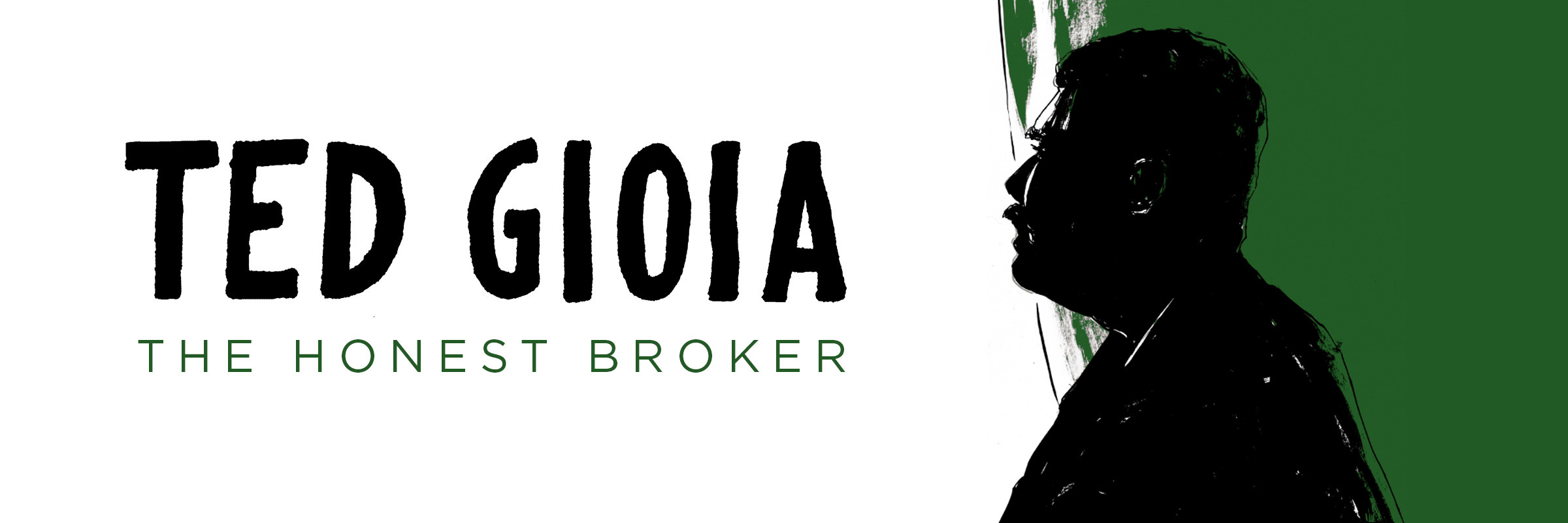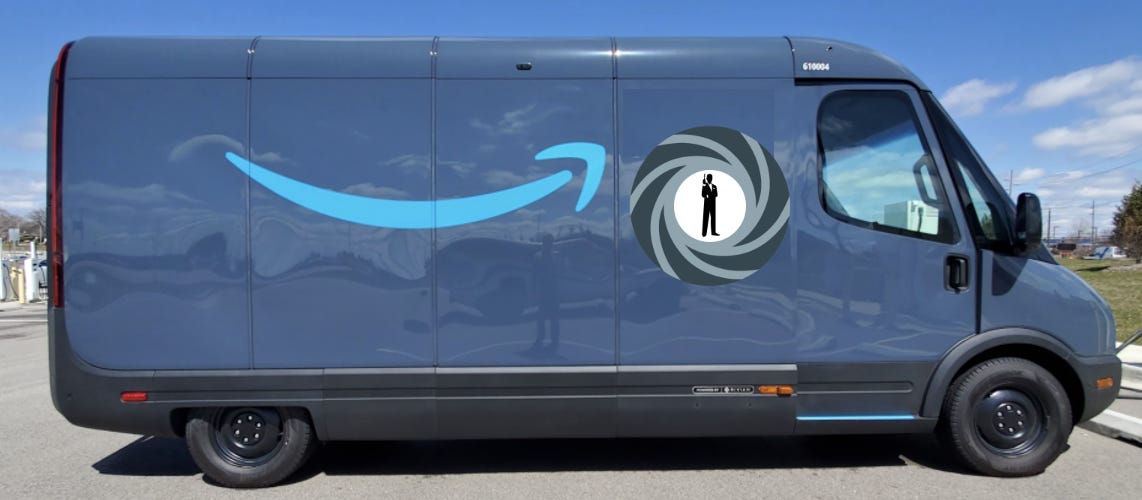In 2025, Your Boss Will Launch a PodcastI warn about new grifts in my latest arts & culture briefing paperImportant events in the digital culture rarely get announced in press releases anymore. In the current state of play, most companies do NOT want you to know what they’re doing. I call it stealth culture. I wrote about this new climate of deception a few days ago with regard to Spotify. But this is now happening everywhere—especially in emerging media and alt platforms. So I search for hidden clues—trying to put the pieces together. Every so often, I share my findings and observations with you in these “arts and culture briefing papers.” These updates are usually for premium subscribers, but today’s installment is free for everybody. Let’s start with disturbing signs that indie culture is getting infiltrated by corporate grifters. If you want to support my work, consider taking out a premium subscription—for just $6 per month (even less if you sign up for a year).Every company now wants its own podcastDo you remember the golden age of infomercials? People watched advertisements for a full half hour (or more) because they were so entertaining. I shamefully admit to doing this myself. Along the way, I bought a ShamWow cleaning cloth, a Juiceman juicer, and BluBlocking sunglasses. But now corporations are using podcasts in the same way—as a kind of infomercial for alt culture audiences. According to David Pierce of The Verge:
The most striking example is in the world of venture capital, where top firms are now using podcasts to connect with entrepreneurs and boast about their expertise. Pierce calls this trend, the nefarious business-to-business podcast. Of course, the trend goes both ways. Many alt media influencers are now turning into financiers themselves. One podcaster recently decided to launch his own venture capital fund—and raised $400 million. This trend will spread faster than a fire in a toothpick factory. Every marketeer in the world spent 2024 trying to get on Joe Rogan. In 2025, they will try to become Joe Rogan themselves. So get ready for your boss to launch a podcast (or a Substack). I think I’ll stick with the ShamWow. At least it cleans up messes. And on a related note… Your next podcast might be a meeting in disguiseThere’s a new way of soliciting business—and it just requires a microphone and a Zoom connection
This scam won’t go away—for the simple reason that it works. When you tap into corporate ego and vanity, you find that they are inexhaustible resources. But this is just one of many ways businesses are manipulating indie culture…. Media outlets tried to kill Substack—now they want to imitate it.I was taken aback when I saw the latest media initiative from The Verge. It looks like Substack. It smells like Substack. It quacks like Substack. Quack! Quack! Hey bros, why don’t you just join Substack? You save on overhead, and get to tap into the community here. And it’s not just The Verge.
On the other extreme, ChatGPT is considering a $2,000-per-month subscription fee. I don’t think that duck is gonna fly, but people who spend their days talking to chatbots tend to lose touch with reality. Influencers will now sell you moldy meals.The idea seems so simple—why don’t influencers launch their own products? If they are really so immensely popular, they should shill for themselves, not corporate bosses. But trust me, you don’t want your meals prepared by an influencer. They may be great at clicks—at bites, not so much. MrBeast has tried to do just that. First he launched the MrBeast Burger—which resulted in a $100 million lawsuit. Then he took on Hershey in the chocolate wars, with mixed reviews. And now he joins forces with Logan Paul to displace Lunchables, the popular school lunch meal kits. But let the luncher beware. “Early reviews of the product are flooding in,” according to MSN, “and some customers said they found mold in their Lunchly packs.” Kids are not digging the new penicillin flavor. It doesn’t help that MrBeast has recently been accused of crypto fraud and putting people in danger with unsafe filming conditions for his new Amazon show. Not long ago, MrBeast acted like a rule-breaking outsider ready to topple the system. But with each passing month, he looks more like those familiar money-grubbing insiders who will do anything for a buck. This is the inevitable result of boom times in alt media, where new voices could be part of a cultural renaissance but just as often will fall flat faster than you can say hawk tuah. The new music counterculture is rejecting algorithms, and celebrating human creativity.“A new music counterculture is emerging, rejecting algorithms and perfection for raw, authentic creativity,” according to Hyperbot. Mark Mulligan, of the Music Industry Blog, reports that DJs are at the center of the revolt.
This is an inevitable response. It starts at the grass roots, but expect to see it spread elsewhere in the music business. James Bond faces a crisis he can’t solve—as the family controlling 007 battles with Amazon.When Amazon acquired MGM, it got rights to the lucrative James Bond films. But it can’t release new installments without the support of spy movie heir Barbara Broccoli. Until she gives okay to the story, no movie can be made. And she despises Amazon. “These people are f— idiots,” she told a friend, according to the Wall Street Journal. She distrusts the algorithm-driven business model of the huge digital retailer (who is now in bed with MrBeast, see above). According to WSJ reporters Erich Schwartzel and Jessica Toonkel:
I don’t blame her. I’ve already seen what Amazon did after acquiring my beloved Whole Foods—you can read the declining employee morale in their facial expressions at the checkout counter. I’d hate to see the same thing happen to 007.
The Barnes & Noble turnaround is really happening—and everybody in the culture business should learn from it.More than a year ago, I celebrated the arrival of a new boss at Barnes & Noble who actually loves books. This led him to do all sorts of brave things. He stopped promoting new titles based on kickbacks from publishers, and instead showcased books that people might actually enjoy reading. This was an example of stealth culture mentioned above. Shoppers had no idea that the promoted books at the front of the store were chosen on the basis of financial incentives, not quality. And new boss Jamie Daunt shook the entire publishing business by turning down the cash. He also empowered employees in the store, giving them freedom to feature books that they loved. He told his local booksellers to remove every title from every shelf, and “weed out the rubbish.” He wanted the staff to be excited about the books they sold. I now have a happy update to my previous report. Barnes & Noble has more than 60 new locations opening this year, and store foot traffic is improving steadily. In an especially inspiring move, the company recently reopened a huge retail space in DC it had abandoned in 2013. After more than a decade, it returned to the same location and opened a flagship store. When he took over, Daunt saw that the stores were “crucifyingly boring.” But now the excitement is back Some visitors even compare Barnes & Noble nowadays to a theme park for books.
Meanwhile here’s a completely different strategy for the book business… In Japan, writers can rent out their own shelf at a local bookstore.The new trend in Japanese bookstores is to sublease the shelves to outsiders. The result is the exact opposite of algorithm-chosen books. Every shelf is filled with surprises. According to the South China Morning Post:
A new conspiracy theory claims ancient literature is fake.Is it possible that Aristotle never existed, and his surviving books are just fakes? I’ve never met anyone who believed that….until now. According to the South China Morning Post:
It’s worth noting the larger context. Western culture is often taken more seriously in Chinese universities than it is in the US. And these books tend to support an open society and free debate. So—as strange as it sounds—you should expect more hit pieces on Aristotle and his ancient colleagues. His enemies think he’s too dangerous, and they just might be right. Are chatbots destroying your home appliances?What happens when AI companies set up huge energy-sucking data centers near your home? Guess what—they disrupt your own energy sources. And with unpleasant consequences.
If you live within 20 miles of a data center, there’s a fifty percent chance that you’re impacted by its power use. Chess champion Magnus Carlsen is ejected from a NY tournament for wearing jeans.Can this be real? Are chess players really more uptight than country clubs and fancy restaurants? Yes they are. According to The Guardian:
Carlsen responded with indifference—but did take a pot shot at New York:
By the way, we have no dress code at The Honest Broker, and Mr. Carlsen is welcome here any time. You're currently a free subscriber to The Honest Broker. For the full experience, upgrade your subscription. |
Search thousands of free JavaScript snippets that you can quickly copy and paste into your web pages. Get free JavaScript tutorials, references, code, menus, calendars, popup windows, games, and much more.
In 2025, Your Boss Will Launch a Podcast
Subscribe to:
Post Comments (Atom)
Why great AI products are all about the data | Shaun Clowes (CPO Confluent, ex-Salesforce, Atlassian)
Shaun Clowes on why PMs are often so bad, a different way to think about AI, building B2B growth teams, and more ͏ ͏ ͏ ͏ ...
-
code.gs // 1. Enter sheet name where data is to be written below var SHEET_NAME = "Sheet1" ; // 2. Run > setup // // 3....






No comments:
Post a Comment